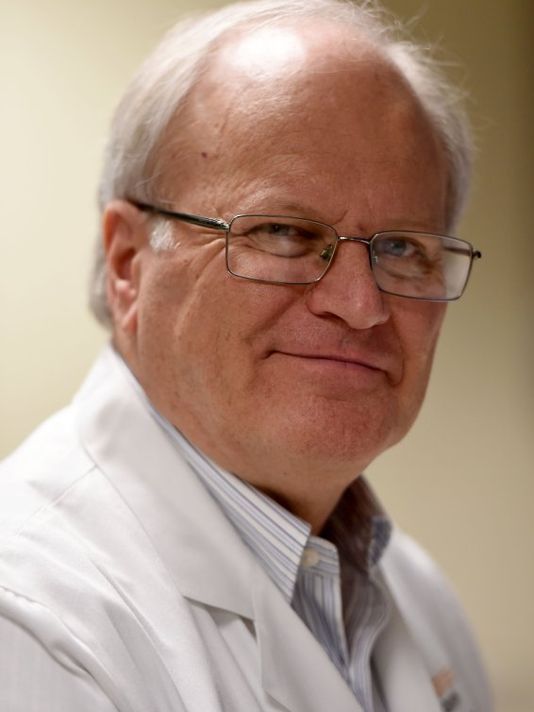March 26th at 4:00 PM – Toyota Auditorium, Howard Baker Center
Hosted by Psychology Graduate Student Association, Forum for Ethics, Science and Policy, and the American Society for Biochemistry and Molecular Biology at UT
 The opiate epidemic may have reached national attention in recent years, but the consequences of this critical issue are still on the rise. Each day in Tennessee, three people die from opiate-related overdose, making this a problem especially important for a state that prescribes more opiates than there are citizens.
The opiate epidemic may have reached national attention in recent years, but the consequences of this critical issue are still on the rise. Each day in Tennessee, three people die from opiate-related overdose, making this a problem especially important for a state that prescribes more opiates than there are citizens.
Many efforts in East Tennessee are currently underway to address this issue, especialy medical, research, and policy strategies to name a few. In this symposia event, student organizations from The University of Tennessee will bring to the UT campus and Knoxville community a panel of local experts who focus on means with which we can better understand, treat, and conquer this fatal epidemic that faces not only our region, but the nation as a whole. Here, we will hear a brief presentation of their approaches followed by a period for Questions/Answers.
Have a question you hope to ask this panel? Submit it HERE!

Ralph Lydic, PhD is the Robert H. Cole Endowed Professor of Neuroscience and Associate Chair for Research in the Department of Anesthesiology, and serves joint professorial appointments in The Department of Anesthesiology at UT Medical Centerand The Department of Psychology at UT, Knoxville. Dr. Lydic also holds a research appointment at The Oak Ridge National Laboratory.
Dr. Lydic describes his research goals as, “to elucidate the mechanisms by which sleep, opioids, and volatile anesthetics modulate pain and depress breathing and arousal. The evolutionary perspective and current data support the view that neurons generating sleep and wakefulness preferentially modulate the ability of opioids, hypnotics, and anesthetics to alter pain, behavioral affect, and states of waking consciousness.” See more HERE!
Dr. Lydic will open our panel with a brief talk entitled, “The Role of Neuroscience in Addressing the Opiate Crisis” wherein we’ll hear of how brain research can aid in reducing the tragic effects of this nationwide crisis.
See Dr. Lydic and fellow world-renowned researcher and wife, Dr. Helen Baghdoyan speak of their historic appointments at The University of Tennessee, Knoxville and The University of Tennessee Medical Center, Knoxville to Knoxville News Sentinel in 2014 below.
______________________

James J. Choo, MD is a Knoxville native and an ABMS board-certified physician on anesthesiology and pain medicine. Dr. Choo serves as the Medical Director of Pain Consultants of East Tennessee (PCET) and the primary investigator for the PCET Research Center.
Dr. Choo is highly respected in his field, for instance having been voted a “Top Doc” for Pain Management by local physicians every year since 2012. He has worked closely with state legislators, other medical providers, and law-enforcement agents regarding pain-management issues in Tennessee. He has also served on the Opioid Prescribing Committee for the Tennessee Medical Association in order to help craft legislation aimed at curbing prescription drug abuse all while protecting the needs of chronic pain sufferers.
You can read more about Dr. Choo HERE!
See Dr. James Choo, as well as our 3rd panelist, Karen Pershing (below), on ABC’s Knoxville affiliate, WATE Channel 6, discuss legitimate pain management approaches in Knox County.
______________________

Karen Pershing, MPH, CPS II is The Executive Director of the Metro Drug Coalition (MDC), the mission of which is to “improve the health of the greater Knoxville community by reducing the use of alcohol and drugs through policy, systems, and environmental change” for a vision of “a healthy and safe community, free of substance abuse.”
Karen works with local and state policymakers to advocate for laws that help prevent substance abuse and its consequences. She is passionate about prescription drug abuse prevention, specifically targeting Neonatal Abstinence Syndrome and increasing access to effective and healthy treatments for pregnant women.
A graduate of UT with a Bachelor of Science in Human Development and Family Studies and a Master of Science in Public Health, Karen is a highly influential community leader in Knox County, graduating also from the Leadership Knoxville Class of 2013 and women’s Addiction Services Leadership Institute Class of 2013. She has influenced policy in a number of avenues, including by way of a statewide planning group to develop a five-year prevention plan for Tennessee, wherein she was one of only four women chosen to serve. She also led the formation of The Knox County Prescription Drug Task Force, which has been recognized as a model coalition by the Tennessee Department’s of Health and Mental Health and Substance Abuse Services.
Watch this brief video of the Metro Drug Coalition and its efforts in Knoxville.
______________________

Craig V. Towers, MD is a Professor in The Department of Obstetrics and Gynecology, Division of Maternal-Fetal Medicine in The University of Tennessee Medical Center’s Graduate School of Medicine. He is board certified through the American Board of Obstetrics and Gynecology, Maternal-Fetal Medicine.
Highly proliferative for years, Dr. Towers has extensive experience in teaching and research. He also has worked with opiate-addicted, pregnant mothers for years, the past 6 of which he has been doing so at times against the guidelines of The American College of Obstetricians and Gynecologists. Once stating that detoxing while pregnant should be avoided, the ACOG has now changed their suggestions in accordance with Dr. Towers’ approach.
Through medically-supervised detoxification and conjunctive behavioral therapy, Dr. Towers has repeatedly reduced or removed patients from opiate addictions without adversely affecting the fetus. This avoidance of Neonatal Abstinence Syndrome (NAS) is a landmark development for perinatology. Following ACOG’s previous guidelines to continue pregnant mothers’ on “maintenance drugs” such as Subutex (buprenorphrine) or methadone, which are weaker yet still highly addictive opiates, mothers were encouraged only after the birth to fully detox, a practice which is less likely to result in stopping the mother’s addiction while still keeping the infant at risk of NAS.
Dr. Towers’ success with his treatment regimen is remarkable – reporting no miscarriages, preterm deliveries, ruptured membranes, or adverse symptoms, including those of addiction in the infants at birth.
“I don’t talk a single patient into detox,” Dr. Towers has said. “I don’t coerce them… or try to give them a guilt trip about NAS.” Even more amazingly, “75 percent of my women come in and say, ‘I don’t want to be on anything,” he also said. Before Dr. Towers’ accomplishments, his practices were often rebuked, with some physicians advising his patients against seeing him because he didn’t follow recommendations. Instead, Dr. Towers has moved the field in a manner that will help save the lives of both babies and mothers.
See the CNN Health Special featuring Dr. Craig Tower’s efforts here in East Tennessee.
Below is a Knoxville News Sentinel piece on Dr. Towers’ work as he treats addicted mothers here in Knoxville.